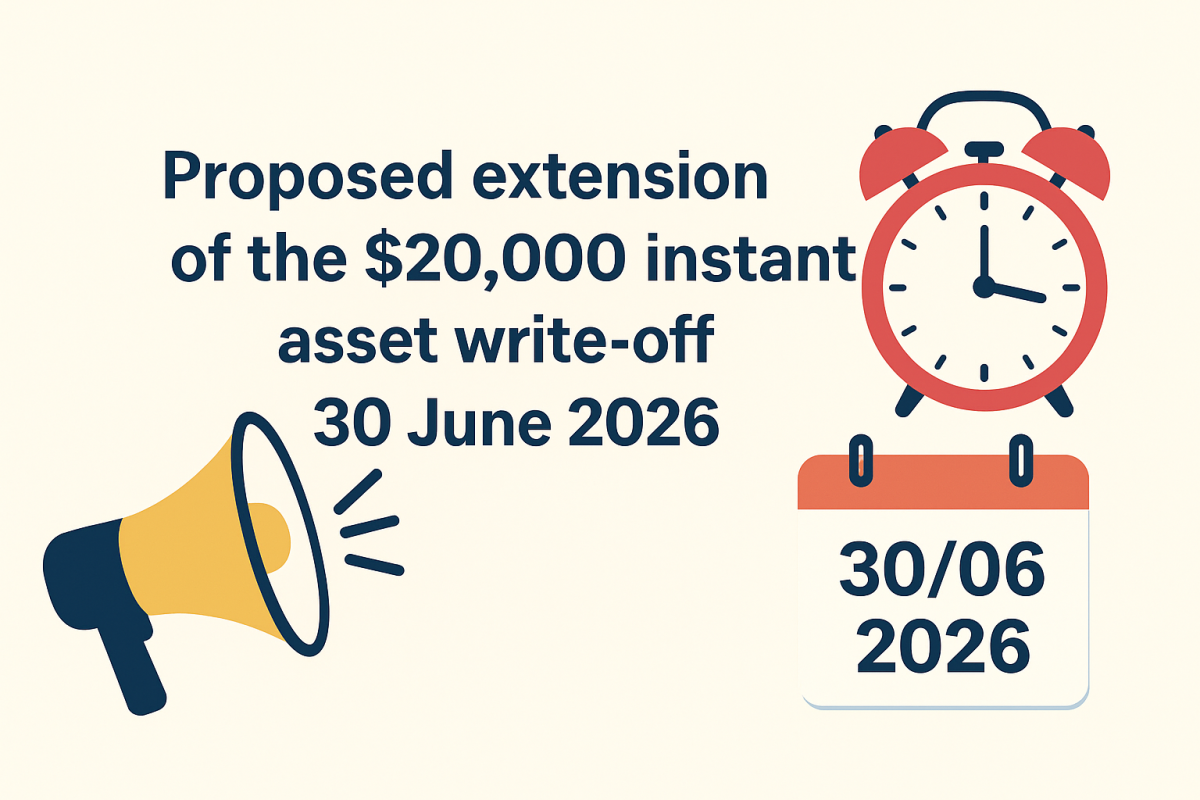Running a business already means keeping several moving parts under control — paying employees correctly, managing budgets, and staying on top of compliance. From 1 July 2026, another major shift will join the mix: a new system that changes the timing of superannuation payments.
Known as Payday Super, this reform officially became law on 4 November 2025. It aims to close Australia’s $6.25 billion in unpaid super and ensure workers — particularly casual and part-time employees — receive their retirement savings consistently and on time.
What’s Changing?
Starting from 1 July 2026, employers will need to pay superannuation guarantee (SG) contributions in line with each pay run, instead of weeks or months later. You’ll have seven business days after paying wages to ensure the contributions reach employees’ super funds.
If payments don’t meet the deadline, the Superannuation Guarantee Charge (SGC) will apply. This includes the unpaid super, an interest component, and an administration fee. Once the SGC has been assessed, further interest or penalties may be charged if the liability remains unpaid.
A key difference under the new system is that SGC amounts will generally be tax-deductible, though penalties for paying SGC late won’t be deductible.
Another notable change: the ATO will retire the Small Business Superannuation Clearing House (SBSCH) on 1 July 2026 for all users, meaning businesses will need alternative ways to process super contributions.
Beyond compliance, the Government expects this shift to meaningfully improve retirement balances. Earlier contributions could increase the average worker’s super by approximately $7,700 over their working life.
Why This Can Benefit Businesses
Although it may look like an extra step at first, Payday Super can streamline your internal processes and strengthen employer credibility.
• Less administration
Aligning super with payroll removes the pressure of quarterly payment deadlines.
• Lower compliance risk
More frequent reporting and ATO data-matching means issues can be detected early, reducing the risk of accumulating penalties.
• Improved employee trust
Employees will be able to see contributions arriving regularly, potentially improving engagement and staff satisfaction.
• Better cash flow planning
Paying smaller amounts more often can be easier to manage than large, irregular quarterly payments.
For the first year of implementation, the ATO will use a risk-based approach, prioritising education and support. Businesses that consistently pay on time are likely to be considered low risk and face fewer compliance interactions.
How to Prepare
There’s still time before Payday Super becomes mandatory, but early preparation will help make the transition smoother.
1. Review your payroll software
Most major platforms (such as Xero, MYOB and QuickBooks) already support or are adapting for payday-aligned super. Check whether your system needs updates or configuration changes.
2. Review your pay cycle
Consider how frequently you pay staff and map out the seven-day window after each pay run to ensure contributions are made on time.
3. Update internal processes
Ensure your payroll team — or anyone involved in processing wages — understands the new rules. The ATO offers free learning materials and information sessions to help businesses prepare.
4. Make adjustments to cash flow planning
If you’re used to quarterly super payments, try moving toward more regular payments now to understand how this affects cash flow. Smaller, frequent payments can help reduce financial pressure.
5. Monitor contributions regularly
Set up a routine to verify that payments have been processed correctly and have cleared into employees’ super funds. Stay alert for any further guidance from the ATO as the start date approaches.
If you outsource payroll, it’s worth speaking to your provider early. Many are already building Payday Super functionality into their systems and can help you adjust your processes.
The Bottom Line
Payday Super is more than a compliance update — it presents an opportunity to streamline payroll, improve transparency, and support your employees’ long-term financial wellbeing. With the legislation now in place and just months before the new rules commence, now is the perfect time to prepare.
If you’d like support reviewing your payroll process or planning your transition to Payday Super, our team is here to help you get everything ready before the new rules take effect.
Pitt Martin Group is a firm of Chartered Accountants, providing services including taxation, accounting, business consulting, self-managed superannuation funds, auditing and mortgage & finance. We spend hundreds of hours each year on training and researching new tax laws to ensure our clients can maximize legitimate tax benefit. Our contact information are phone +61292213345 or email info@pittmartingroup.com.au. Pitt Martin Group is located in the convenient transportation hub of Sydney’s central business district. Our honours include the 2018 CPA NSW President’s Award for Excellence, the 2020 Australian Small Business Champion Award Finalist, the 2021 Australia’s well-known media ‘Accountants Daily’ the Accounting Firm of the Year Award Finalist and the 2022 Start-up Firm of the Year Award Finalist, and the 2023 Hong Kong-Australia Business Association Business Award Finalist.
Pitt Martin Group qualifications include over fifteen years of professional experience in accounting industry, membership certification of the Chartered Accountants Australia and New Zealand (CA ANZ), membership certification of the Australian Society of Certified Practising Accountants (CPA), Registered Australia Tax Agents, certified External Examiner of the Law Societies of New South Wales, Victoria, and Western Australia Law Trust Accounts, membership certification of the Finance Brokers Association of Australia Limited (FBAA), Registered Agents of the Australian Securities and Investments Commission (ASIC), certified Advisor of accounting software such as XERO, QUICKBOOKS, MYOB, etc.
This content is for reference only and does not constitute advice on any individual or group’s specific situation. Any individual or group should take action only after consulting with professionals. Due to the timeliness of tax laws, we have endeavoured to provide timely and accurate information at the time of publication, but cannot guarantee that the content stated will remain applicable in the future. Please indicate the source when forwarding this content.
By Yvonne Shao @ Pitt Martin Tax





